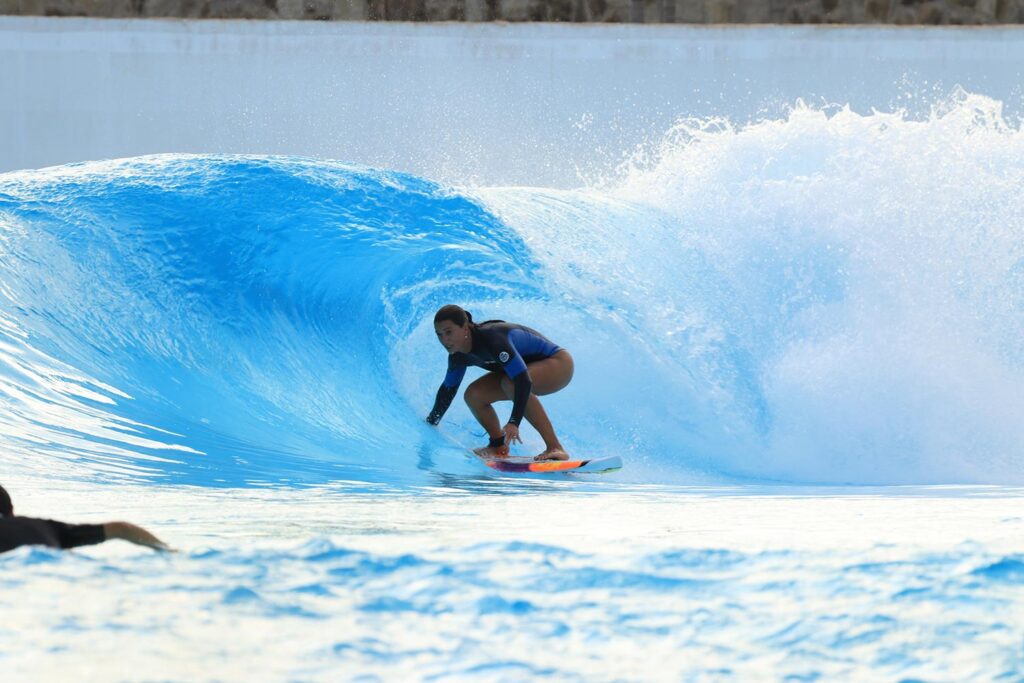
27 May, 2024
· 0 comments
In the world of surfing, every detail matters, from choosing the right wetsuit to applying the correct wax. Today, Antonio, the store manager and expert on these materials at Calima Surf, will share valuable advice on how to select and care for our surf equipment to ensure the best performance in the water.
I always advise considering two main factors: water temperature and session duration. Here at Calima Surf, we mainly use 3/2 mm wetsuits, although we also have some 4/3 mm ones for those who prefer extra thermal protection, especially in cooler months like February and March. For year-round surfing in Famara, with water temperatures ranging from approximately 18 to 25 degrees, a 3/2 mm wetsuit is more than sufficient. The sun shines almost every day in Famara, generating heat while you surf and keeping you comfortable in the water.
Regarding wetsuit care, it’s essential to rinse it with fresh water after each use to remove salt and prevent material deterioration. Although there are special soaps for wetsuits, a simple rinse with fresh water is usually enough to keep it clean and extend its lifespan. Hanging it out to dry in the sun is important, but make sure to remove it once it’s dry to avoid sun damage.
The most common mistake is frequent use without proper rinsing. Many people use it, dry it, put it back on, dry it again, and at the end of the weekend, they store it without rinsing it. This habit can significantly shorten the wetsuit’s lifespan.
Waxing the board properly is crucial to ensure good grip and control while surfing. At Calima Surf, we use different types of wax depending on the water temperature and external weather conditions. It’s not just about the water temperature but also about the overall climate.
Generally, wax is applied to fiberglass boards, not cork boards. We use a high-temperature base wax in a very thin layer to prepare the board and allow the other layers of wax to adhere better. As for the types of wax, we have hot, mid cool, and cool wax, tailored to different temperature ranges. At Calima, we prefer mid cool and warm wax for most conditions.
Personally, I recommend applying wax to the board before each session. It’s important to maintain good grip at all times. Combing the wax throughout the board can also help you distribute the wax better and create more traction. Additionally, cleaning the wax regularly, for example every 20 or 30 sessions to get rid off the old used up wax and replace it with a new one will help you keep the board lighter and have the better quality wax for better performance.
In addition to waxing, there are crucial aspects to ensure the durability and performance of the board. Avoiding direct exposure to sunlight is essential, as UV rays can damage materials such as fiberglass and resin, causing them to yellow over time.
It’s important to inspect the board after each session, especially if surfing in rocky or crowded areas where bumps may occur. Looking for dents, dings, or cracks where water could enter is essential. If any damage is detected, it’s crucial to repair it as soon as possible to prevent further issues. Maintaining this practice regularly will prolong the board’s lifespan and ensure optimal performance.
Comments
Leave a comment
Your e-mail address will not be published. Required fields are marked with *.